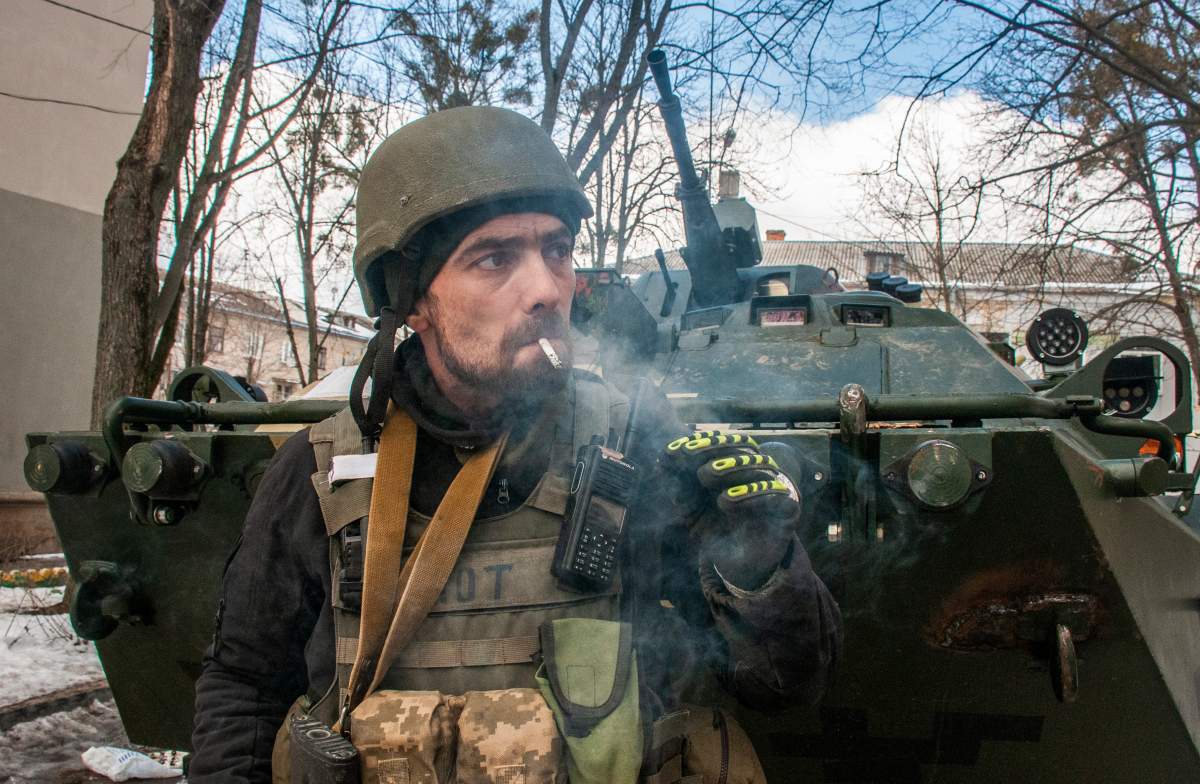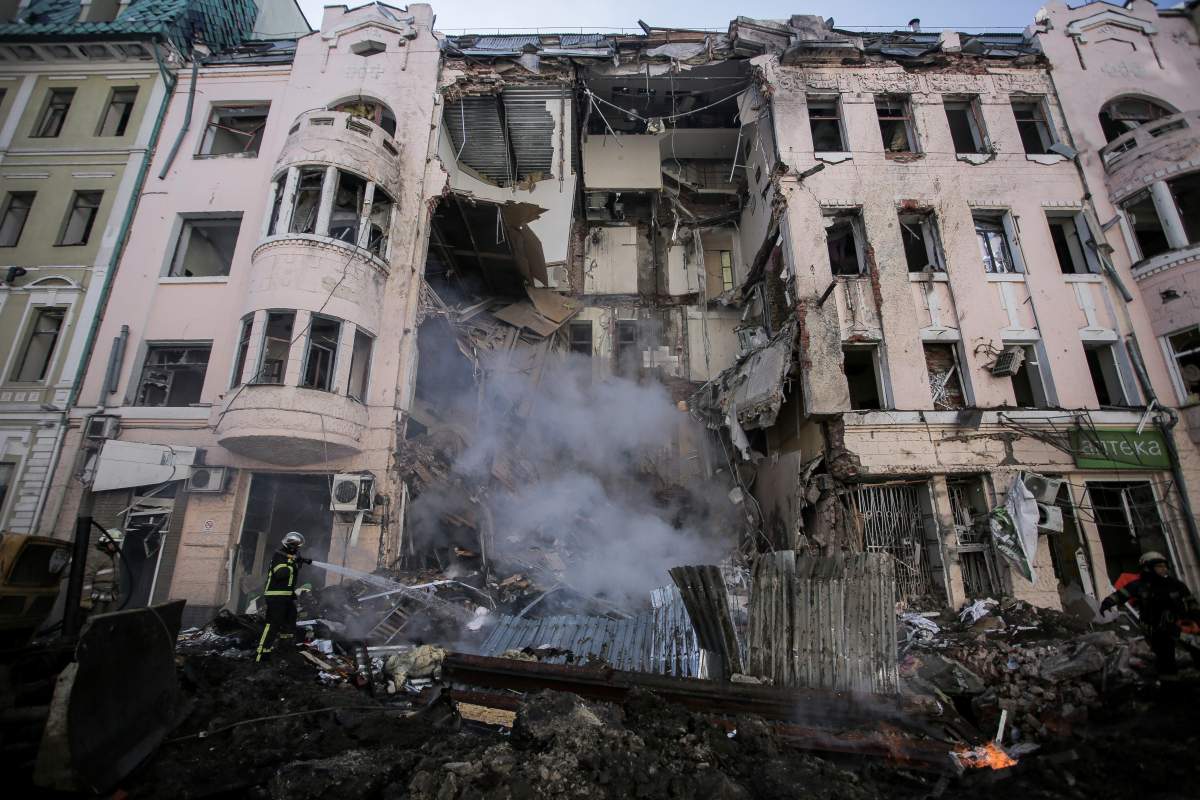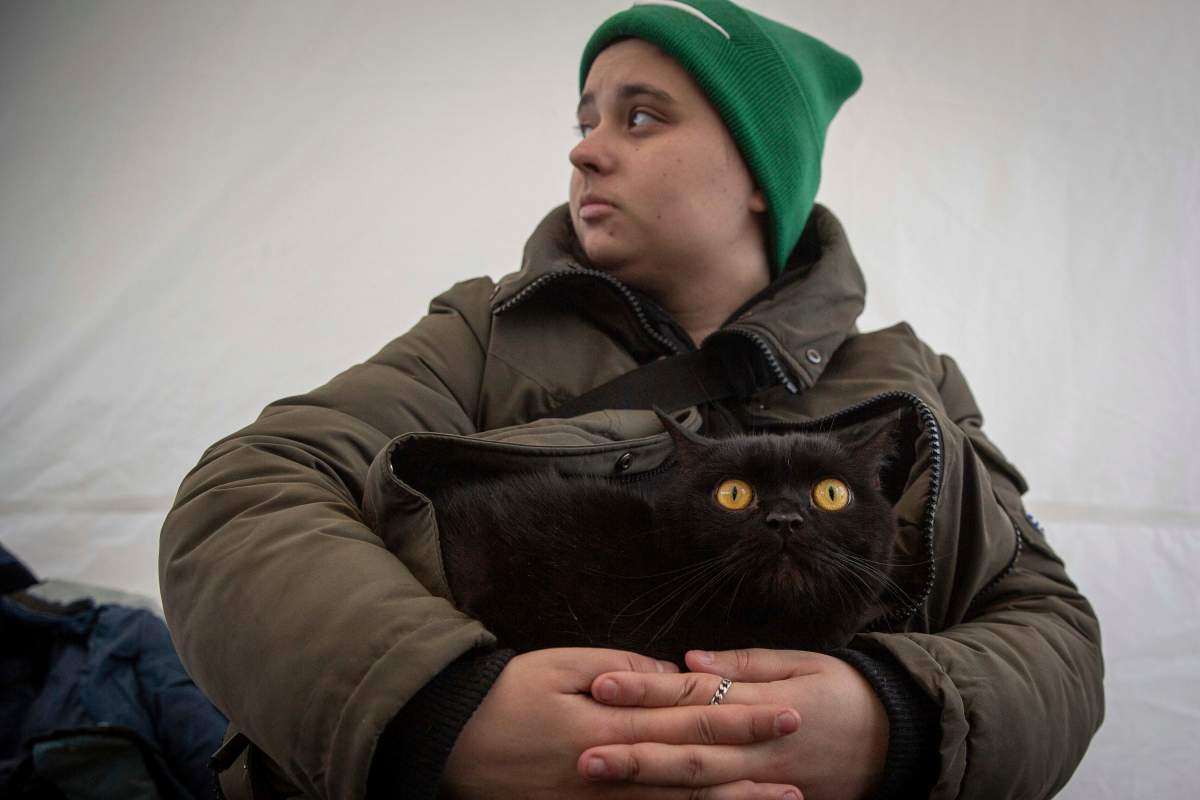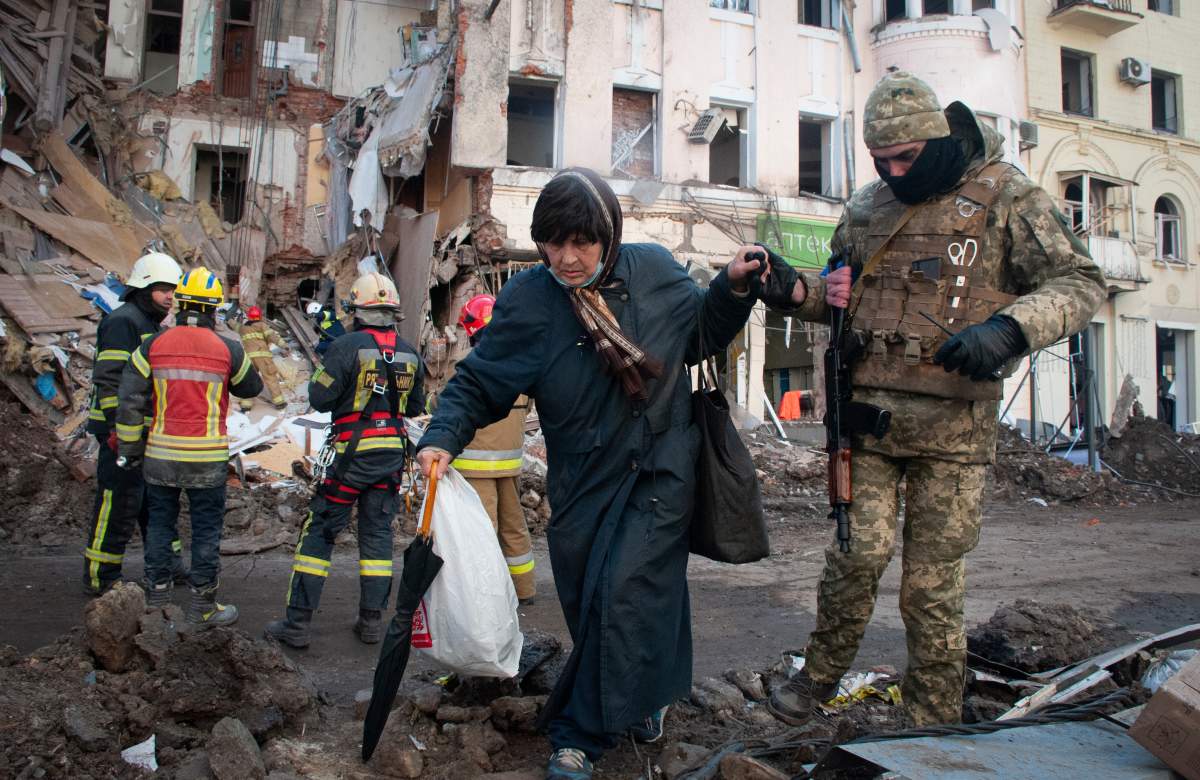Living in Kharkiv, Ukraine‘s second-largest city, one Ukrainian describes “constant stress” and the fear of not knowing when or where the next Russian strike will hit.

“It’s not safe anywhere,” Maria Avdeeva told Global News’ Crystal Goomansingh, as Russia has been consistently shelling residential areas in the city, she said.
Russia’s invasion of Ukraine is entering its 22nd day Thursday since Moscow declared a “special military operation” on February 24, and began shelling the country.
Since that day, the lives of all Ukrainians have been turned upside down, including Avdeeva’s.
Before Feb. 24, Avdeeva was the research director at the European Expert Association, a non-profit think tank focusing on foreign policy and Ukraine’s national security.
But in the face of Ukraine’s invasion, Avdeeva says that she, like every Ukrainian, has taken up new responsibilities.
For Avdeeva, her focus has turned to flagging Russia’s disinformation about its campaign.
Russia claims the purpose of its mission is to “deNazify” Ukraine. Since the invasion began, Avdeeva said social media has been flooded with Russian disinformation and propaganda about the war.
“They are trying to justify this invasion,” Avdeeva said of Russia’s media efforts. “I decided … where I can be useful is giving the true and exact information of what is happening in the city.”
She has since tweeted information on Russia’s attacks regularly to show what is really happening on the ground.

Get daily National news
Already, Russia has proven it is willing to target civilians that have no involvement in the military, Avdeeva said.
Russian forces have shelled a theatre in the port city of Mariupol that sheltered hundreds of Ukrainians, she said, and have fired on a bread line in Chernihiv, northeast of Kyiv, killing 10, according to the U.S. Embassy in Kyiv.
Avdeeva recalls talking to a man in Kharkiv who said his brother was just killed by a bombardment on the street as he was getting water and food from a shop.
“It was unexpected,” she said. “It just started one moment and he was there and his body was torn apart.”
Many have taken to sheltering in metro stations, Avdeeva said, where it is warmer than homes without power as Ukraine is experiencing an “unusual spring” with temperatures dropping down to -15 C.
In the stations, volunteers hand out tea and warm food and Ukrainians sleep either on the floor or in the subway cars, she said.
Avdeeva said people are constantly on their phones scrolling through local social media to get news of where shelling has taken place.
She said almost no one is outside now and those who do venture to get supplies do so in groups to feel safer.

Then, as night falls, the entire city is dark, mostly due to an order to keep lights off to not catch the attention of Russian troops.
“I have never seen the city like that before,” Avdeeva said. “No lights at all.”
She said more people are continuing to leave Kharkiv because it is apparent it will take a long time to repair the city after all of the destruction.
Russia has yet to capture any of Ukraine’s biggest cities, but a convoy of military vehicles kilometres long waits outside of Kyiv. Mariupol has been under siege for weeks.
As Avdeeva witnesses the horrors of the invasion, she also sees Ukrainians sticking together, lending a helping hand and talking to each other to learn more about the situation or just to ask “how are you,” which she admitted would be “strange” during peaceful times.
“You feel this kind of unity,” she said.








Comments
Want to discuss? Please read our Commenting Policy first.